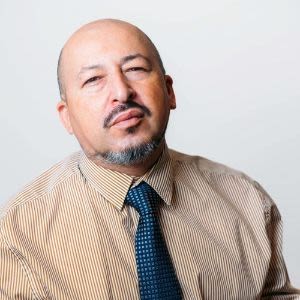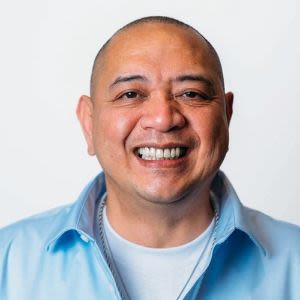








Hollywood Hills Recovery
Verified Center
This provider's information has been quality-checked by Recovery.com's Research Team for accuracy and completeness, including center verification through appropriate third-party organizations.
Treatment Focus
This center treats substance use disorders and co-occurring mental health conditions. Your treatment plan addresses each condition at once with personalized, compassionate care for comprehensive healing.
Primary Level of Care
Offering intensive care with 24/7 monitoring, residential treatment is typically 30 days and can cover multiple levels of care. Length can range from 14 to 90 days typically.
Treatment Focus
This center treats substance use disorders and co-occurring mental health conditions. Your treatment plan addresses each condition at once with personalized, compassionate care for comprehensive healing.
Primary Level of Care
Offering intensive care with 24/7 monitoring, residential treatment is typically 30 days and can cover multiple levels of care. Length can range from 14 to 90 days typically.
Provider's Policy
We DO NOT accept Medicaid/Medicare. Do not be discouraged if you are not seeing your insurance provider listed on our website. We take many types of insurance, and you may still qualify for coverage.
Hollywood Hills Recovery
Hollywood Hills Recovery
About Hollywood Hills Recovery
Hollywood Hills Recovery is a boutique addiction and mental health treatment center offering 30-60 day luxury recovery experiences curated for each client. For every client, the goal is the same—overcome withdrawal and delve deep into the driving factors behind addiction or mental health challenges. Their treatment model incorporates personalized detox, residential care, partial hospitalization, and aftercare.
Learn from a Team with Lived Experience
The staff at Hollywood Hills understands addiction firsthand, and they’re committed to creating a shame-free, supportive environment as clients begin a life of sobriety. They know that recovery looks different for each person, so they use evidence-based therapies known to challenge negative thoughts, improve stress tolerance, and address trauma. Mindfulness therapies bring clients into the present and infuse their day with positivity.
Find Flexibility with Day Treatment
For clients who are unable to stay on site, Hollywood Hills Recovery offers a partial hospitalization program (PHP) with treatment durations of 4-8 hours per day depending on the client’s needs. No matter the chosen program, all clients have access to the same beneficial treatment—medication-assisted treatment (MAT), counseling, and off-site sober outings.
Experience Fun, Excitement, and Luxury
Hollywood Hills Recovery has panoramic city views that stretch all the way down to the Pacific Ocean. Clients discover a world of amenities on and off-site. To rejuvenate the body and mind, clients can use the outdoor gym fully equipped with weights, bikes, and treadmills. A private chef prepares 3 meals a day and stocks the pantry with everyone’s favorite snacks. And when it’s time to explore, clients can spend a day at the beach or engage the senses at a spa during their free time.

Highlights from the Center
Highlights
These highlights are provided by and paid for by the center.
Customized Treatment Plans
Perfect for Professionals
On-site Medical Detox
Boutique
Center Overview
Treatment Focus
This center treats substance use disorders and co-occurring mental health conditions. Your treatment plan addresses each condition at once with personalized, compassionate care for comprehensive healing.
Joint Commission Accredited
The Joint Commission accreditation is a voluntary, objective process that evaluates and accredits healthcare organizations (like treatment centers) based on performance standards designed to improve quality and safety for patients. To be accredited means the treatment center has been found to meet the Commission's standards for quality and safety in patient care.

Hollywood Hills Recovery
Insurance Accepted
Cash Pay Rates
Estimated Cash Pay Rate
Center pricing can vary based on program and length of stay. Contact the center for more information. Recovery.com strives for price transparency so you can make an informed decision.




Partner Facility
Recovery.com Verified Listing
Recovery.com verified that the name, location, contact information and license to operate for this treatment provider are valid and up-to-date.

Joint Commission Accredited

Licensed by California DHCS
Recovery.com is an independent, third-party mental health resource. Verification does not imply endorsement and does not guarantee the quality of treatment services.
Meet Your Care Team

Dr. Darren Lipshitz
Medical Director
MD

Talin Mouradian
Co-Founder & CEO
LMFT

Glenn Rottmann
Hypnotherapist

Nicholas Aboolian
Co-Founder

Fred Akopyan
Co-Founder

Vanessa Souisa
Certified Alcohol and Drug Addiction Counselor
CADAC 3

Rene Almenar
Behavioral Technician

Arnel Manas
Director of Operations

Bill Leavitt
icensed Marriage and Family Therapist
LMFT

Christine Chakarian
Clinical Director
Your Care Options
Specializations
Alcohol
Using alcohol as a coping mechanism, or drinking excessively throughout the week, signals an alcohol use disorder.
Benzodiazepines
Benzodiazepines are prescribed to treat anxiety and sleep issues. They are highly habit forming, and their abuse can cause mood changes and poor judgement.
Cocaine
Cocaine is a stimulant with euphoric effects. Agitation, muscle ticks, psychosis, and heart issues are common symptoms of cocaine abuse.
Executives
Executive treatment programs typically directly support the needs of people who manage businesses and may provide flexible schedules and office space to allow work during treatment.
Gambling
Excessive, repetitive gambling causes financial and interpersonal problems. This addiction can interfere with work, friendships, and familial relationships.
Methamphetamine
Methamphetamine, or meth, increases energy, agitation, and paranoia. Long-term use can result in severe physical and mental health issues.
Prescription Drugs
It's possible to abuse any drug, even prescribed ones. If you crave a medication, or regularly take it more than directed, you may have an addiction.
Professionals
Busy, high-ranking professionals get the personalized treatment they need with greater accommodations for work, privacy, and outside communication.
Who We Treat
Older Adults
Addiction and mental health treatment caters to adults 55+ and the age-specific challenges that can come with recovery, wellness, and overall happiness.
Executives
Executive treatment programs typically directly support the needs of people who manage businesses and may provide flexible schedules and office space to allow work during treatment.
Young Adults
Emerging adults ages 18-25 receive treatment catered to the unique challenges of early adulthood, like college, risky behaviors, and vocational struggles.
LGBTQ+
Addiction and mental illnesses in the LGBTQ+ community must be treated with an affirming, safe, and relevant approach, which many centers provide.
Men and Women
Men and women attend treatment for addiction in a co-ed setting, going to therapy groups together to share experiences, struggles, and successes.
Midlife Adults
For adults ages 40+, treatment shifts to focus on the unique challenges, blocks, and risk factors of their age group, and unites peers in a similar community.
Professionals
Busy, high-ranking professionals get the personalized treatment they need with greater accommodations for work, privacy, and outside communication.
Treatment Services
Detox
Detox fully and safely removes toxic substances from the body, allowing the next steps in treatment to begin with a clean slate.
Outpatient
During outpatient rehab, patients attend a structured treatment program while continuing to live at home.
Residential
In a residential rehab program, patients live onsite, with access to daily treatment and 24-hour care. An average stay is 30-90 days.
Approaches
Evidence-Based
A combination of scientifically rooted therapies and treatments make up evidence-based care, defined by their measured and proven results.
Holistic
A non-medicinal, wellness-focused approach that aims to align the mind, body, and spirit for deep and lasting healing.
Individual Treatment
Individual care meets the needs of each patient, using personalized treatment to provide them the most relevant care and greatest chance of success.
Personalized Treatment
The specific needs, histories, and conditions of individual patients receive personalized, highly relevant care throughout their recovery journey.
Twelve Step
Incorporating spirituality, community, and responsibility, 12-Step philosophies prioritize the guidance of a Higher Power and a continuation of 12-Step practices.
Therapies
1-on-1 Counseling
Patient and therapist meet 1-on-1 to work through difficult emotions and behavioral challenges in a personal, private setting.
Meditation & Mindfulness
A practiced state of mind that brings patients to the present. It allows them to become fully aware of themselves, their feelings, and the present moment.
Adventure Therapy
This experiential approach uses the physical and emotional challenges of outdoor activities as tools for personal growth.
Art Therapy
Visual art invites patients to examine the emotions within their work, focusing on the process of creativity and its gentle therapeutic power.
Dance Therapy
This experiential therapy uses dance to improve body awareness, physical health, and social skills.
Eye Movement Therapy (EMDR)
Lateral, guided eye movements help reduce the emotional reactions of retelling and reprocessing trauma, allowing intense feelings to dissipate.
Hypnotherapy
A hypnotherapist guides patients through a trance-like state. This helps them identify and process subconscious emotions and regain inner control.
Massage Therapy
Massage therapy relieves physical and emotional tension, reduces pain, promotes relaxation, and improves emotion regulation.
Conditions We Treat
Gambling
Excessive, repetitive gambling causes financial and interpersonal problems. This addiction can interfere with work, friendships, and familial relationships.
Substances We Treat
Alcohol
Using alcohol as a coping mechanism, or drinking excessively throughout the week, signals an alcohol use disorder.
Benzodiazepines
Benzodiazepines are prescribed to treat anxiety and sleep issues. They are highly habit forming, and their abuse can cause mood changes and poor judgement.
Chronic Relapse
Consistent relapse occurs repeatedly, after partial recovery from addiction. This condition requires long-term treatment.
Co-Occurring Disorders
A person with multiple mental health diagnoses, such as addiction and depression, has co-occurring disorders also called dual diagnosis.
Cocaine
Cocaine is a stimulant with euphoric effects. Agitation, muscle ticks, psychosis, and heart issues are common symptoms of cocaine abuse.
Drug Addiction
Drug addiction is the excessive and repetitive use of substances, despite harmful consequences to a person's life, health, and relationships.
Ecstasy
Ecstasy is a stimulant that causes intense euphoria and heightened awareness. Abuse of this drug can trigger depression, insomnia, and memory problems.
Heroin
Heroin is a highly addictive and illegal opioid. It can cause insomnia, collapsed veins, heart issues, and additional mental health issues.
Languages
Aftercare
Care Designed for Your Needs
Personal Amenities
Amenities
Special Considerations
Young Adults Program
Programs for young adults bring teens 18+ together to discuss age-specific challenges, vocational and educational progress, and successes in treatment.
Activities
Yoga
Yoga is both a physical and spiritual practice. It includes a flow of movement, breathing techniques, and meditation.
Off-Site Activities
Off-Site Amenities
Learn More About the Center
Top 9 Repercussions of Alcohol Addiction
Read about alcohol addiction’s devastating effects that extend far beyond physical dependency.
Key Signs and Symptoms of Overdose
Explore what it takes to navigate love with someone in recovery.
Dating Someone in Recovery
Explore what it takes to navigate love with someone in recovery.
Rehabs for Executives
Discover how sobriety has strategic advantages for executives.
What people are saying
Treatment
4.9
Accommodations
5.0
Food & Nutrition
5.0
Value
4.9
Pros
- Supportive Aftercare (13)
- Beautiful Location (12)
- Luxurious Accommodations (10)
- Gourmet & Nutritious Food (10)
Narbeh S
Treatment in 2021 • (60 days) • Reviewed 10/24/23
Former Client
•Mortgage Loan Consultant
Dinesh R
Treatment in 2022 • Reviewed 10/24/23
Former Client
•Software Engineer
Sam P
Treatment in 2021 • (45 days) • Reviewed 10/24/23
Former Client
Sarah Bissett
Treatment in 2022 • (60 days) • Reviewed 02/07/23
Former Client
Alicia
Reviewed 05/24/22
Review from Rehabs.com





